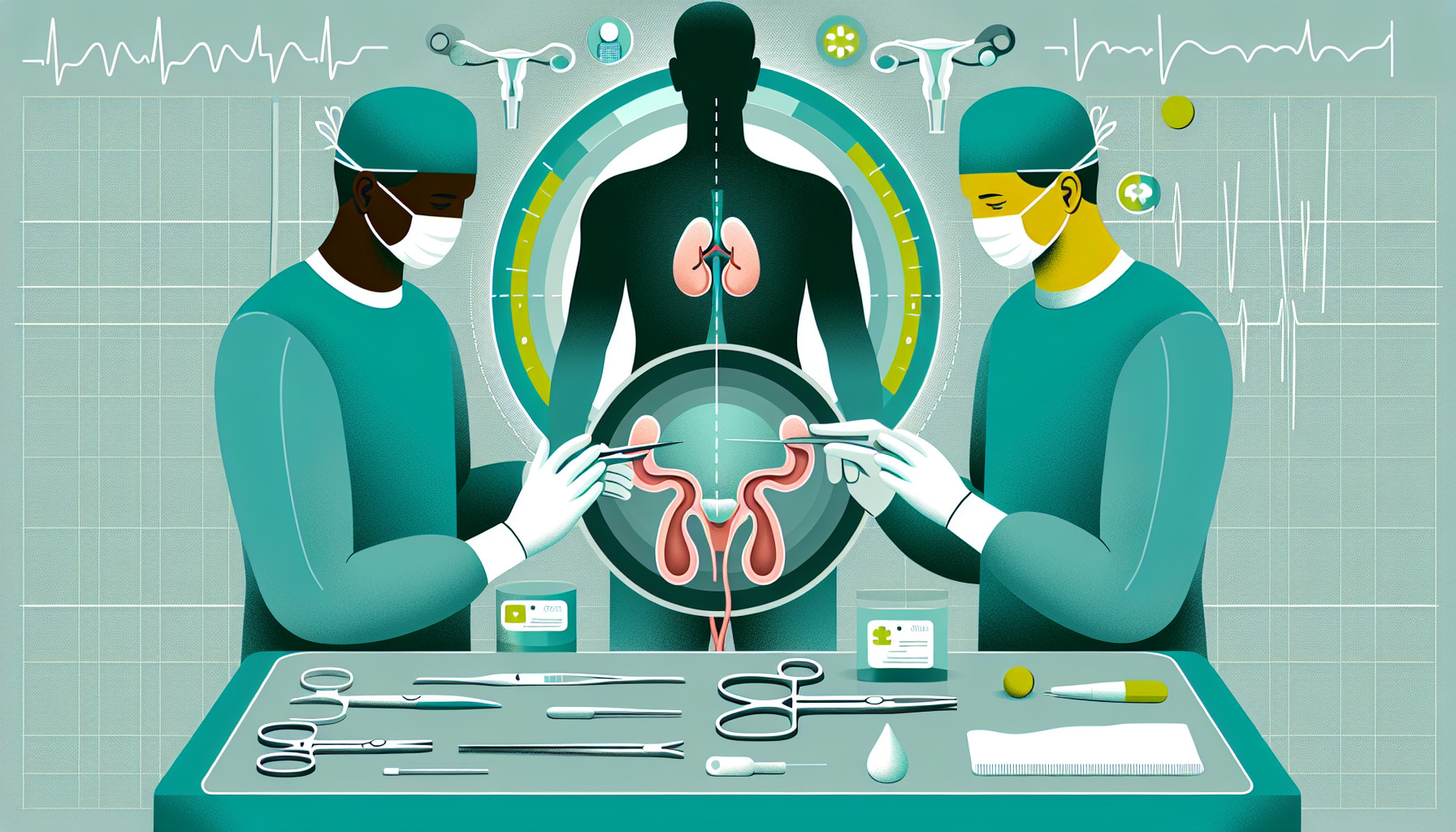Our Summary
This research paper is a review of fifteen years of using robots to assist in a type of bladder surgery called radical cystectomy. The paper compares this method to the traditional method of surgery. It looks at several factors including: how successful the surgery is at removing cancer, how well the patient functions after surgery, the complications that arise from surgery, and the direct and indirect costs of the surgery. The paper examines other studies that have been done on this topic. In some cases, the robot-assisted surgery was as effective at removing cancer as the traditional surgery, and had fewer post-surgery complications. However, the paper also acknowledges that there are limitations to the available research, and therefore it is difficult to draw firm conclusions.
FAQs
- How does robot-assisted cystectomy compare to traditional surgery for bladder cancer?
- What factors do this research paper consider while comparing robot-assisted surgery and traditional surgery for bladder cancer?
- What are the limitations of the research available on robot-assisted cystectomy?
Doctor’s Tip
One important tip that a doctor might give to a patient undergoing a cystectomy is to carefully follow all post-operative instructions and attend all follow-up appointments. This will help ensure proper healing, monitor for any potential complications, and optimize overall outcomes. Additionally, maintaining a healthy lifestyle, including regular exercise and a balanced diet, can also support recovery and overall well-being after surgery.
Suitable For
Patients who are typically recommended cystectomy include those with bladder cancer that has not responded to other treatments, such as chemotherapy or radiation therapy. Additionally, patients with invasive bladder cancer, recurrent bladder cancer, or those with large tumors may also be candidates for cystectomy. Patients with other conditions that affect the bladder, such as interstitial cystitis or neurogenic bladder, may also be recommended for cystectomy if other treatments have been unsuccessful. Ultimately, the decision to undergo cystectomy is made on a case-by-case basis by a multidisciplinary team of healthcare providers.
Timeline
Before cystectomy:
- Patient is diagnosed with bladder cancer and undergoes various tests to determine the stage and extent of the disease.
- Patient discusses treatment options with their healthcare team, including the possibility of cystectomy.
- Patient undergoes pre-operative preparation, which may include imaging tests, blood work, and other assessments.
- Patient meets with various healthcare professionals to discuss the surgery, potential complications, and post-operative care.
After cystectomy:
- Patient undergoes the cystectomy surgery, which may be done traditionally or with the assistance of a robot.
- Patient spends time recovering in the hospital, where they may experience pain, discomfort, and possible complications.
- Patient may require additional treatments such as chemotherapy or radiation therapy depending on the stage and extent of the cancer.
- Patient undergoes post-operative rehabilitation and physical therapy to regain strength and function.
- Patient undergoes regular follow-up appointments to monitor for any signs of cancer recurrence or complications.
- Patient may experience changes in their quality of life, including potential challenges with urinary function and body image.
Overall, the timeline for a patient before and after cystectomy is a challenging and complex process that requires comprehensive care and support from a multidisciplinary healthcare team.
What to Ask Your Doctor
- What are the potential benefits of robot-assisted cystectomy compared to traditional surgery?
- What are the potential risks or complications associated with robot-assisted cystectomy?
- How long is the recovery time after robot-assisted cystectomy compared to traditional surgery?
- Will I need any additional treatments or follow-up care after the surgery?
- How experienced is the surgical team in performing robot-assisted cystectomies?
- What is the success rate of robot-assisted cystectomy in terms of removing cancer completely?
- How does the cost of robot-assisted cystectomy compare to traditional surgery?
- Are there any long-term effects or considerations I should be aware of after robot-assisted cystectomy?
- Are there any specific lifestyle changes or adjustments I will need to make after the surgery?
- Are there any alternative treatment options to consider aside from robot-assisted cystectomy?
Reference
Authors: Tyritzis SI, Wiklund NP. Journal: Int J Urol. 2018 Mar;25(3):187-195. doi: 10.1111/iju.13497. Epub 2017 Nov 26. PMID: 29178344
